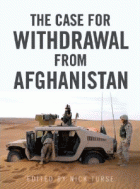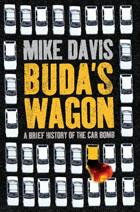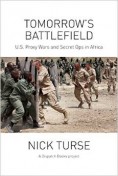Perhaps you won’t be surprised to learn that President Trump’s newest healthcare policy expert, Scott Atlas, believes that opposition to reopening America’s schools this fall is "ludicrous" and nothing but “hysteria.” Meanwhile, across this country, grandparents like me watch a president incapable of taking responsibility for anything he does continue to run this country into the ground. Naturally, he’s been pushing like a maniac -- well, he is a maniac -- to “reopen” America’s schools in the midst of a still-raging pandemic. (Hey, just remind me, how did that work out when it came to the economy?) As a result, many of us will be wondering, with trepidation, what it might mean for kids to attend potentially pandemicized public schools in September, perhaps as in the case of teacher Belle Chesler (or one of my own grandchildren), a school whose ventilation systems are substandard and where some classroom windows may not even open.
We wonder what those children may bring back each evening along with their homework and whether, once they are in school (if teachers don’t strike or sick-out them closed), just when we grandparents will be able to see them safely. In a land swept by a pandemic and in the hands of someone who clearly doesn’t have the faintest sense of the value of any life but his own (and perhaps those of his children), it’s hard not to despair. So I feel empathetic to TomDispatch regular Belle Chesler, both a teacher and a parent, facing the fall reopening from hell. Consider such an all-American, twenty-first-century nightmare from her point of view, while you imagine the future of a country that we still inhabit, but that more than 170,000 Americans are no longer around to share with us. Tom
The “Great” Reopening
Or Setting America’s Schools Up to Fail
By Belle CheslerSeventeen years ago, against the advice of my parents, I decided to become a public school teacher. Once I did, both my mother and father, educators themselves, warned me that choosing to teach was to invite attacks from those who viewed the profession with derision and contempt. They advised me to stay strong and push through when budgets were cut, my intellect questioned, or my dedication to my students exploited. Nobody, however, warned me that someday I might have to defend myself against those who asked me to step back into my classroom and risk my own life, the lives of my students and their families, of my friends, my husband, and my child in the middle of a global pandemic. And nobody told me that I’d be worrying about whether or not our nation’s public schools, already under siege, would survive the chaos of Covid-19.
Pushing students back into school buildings right now simply telegraphs an even larger desire in this society to return to business as usual. We want our schools to open because we want a sense of normalcy in a time of the deepest uncertainty. We want to pretend that schools (like bars) will deliver us from the stresses created by a massive public health crisis. We want to believe that if we simply put our children back in their classrooms, the economy will recover and life as we used to know it will resume.
In reality, the coronavirus is -- or at least should be -- teaching us that there can be no going back to that past. As the first students and teachers start to return to school buildings, images of crowded hallways, unmasked kids, and reports of school-induced Covid-19 outbreaks have already revealed the depths to which we seem willing to plunge when it comes to the safety and well-being of our children.
Forget those negotiations with China spearheaded by the man who boasted that he was the maestro of “the art of the deal.” Recently, it’s been an all-hands-on-deck assault on that country: from deploying U.S. aircraft carriers in the South China Sea to the sudden and arbitrary closing of a Chinese consulate in Houston. Of all people, Health Secretary Alex Azar was even dispatched to Taiwan, that other China, to meet and greet the country’s president, the highest-ranking official American visitor to do so in four decades. Of course, as with so much in the age of Trump, there was a grimly comic aspect to his trip, since he made a particular point of praising the way a democratic country could handle the ongoing Covid-19 pandemic (a howler, given how Chinese President Xi Jinping and Donald Trump have each handled that same virus). And that’s just to start down a list that, from TikTok bans to criminal charges against four members of the Chinese military, only continues to grow as The Donald and crew become ever more belligerent about that rising power on a falling planet.
As TomDispatch regular Dilip Hiro, author of After Empire: The Birth of a Multipolar World, suggests today, behind the growing belligerence of the Trump administration, which should be considered dangerous indeed at this moment -- think new Cold War -- lies the anger of a president whose world seems to be slipping out of control. Back in 2016, I suggested that Donald Trump was running as this country’s first declinist presidential candidate (the clue lay in that hardly noticed “again” at the end of his election slogan Make America Great Again, or MAGA). And, as Hiro suggests today, looking at the high-tech business world, he’s delivered big time.
Whether negotiating with China, North Korea, or any other country, the art-of-the-dealer-in-chief has proven to be either a stealer-in-chief or an unreeler-in-chief. So say goodbye to the American Century but, given the state of this planet, don’t count on a Chinese Century either. Tom
Whose Century Is It?
Don’t Ask Donald Trump
By Dilip HiroFor the Trump administration’s senior officials, it’s been open season on bashing China. If you need an example, think of the president’s blame game about “the invisible Chinese virus” as it spreads wildly across the U.S.
When it comes to China, in fact, the ever more virulent criticism never seems to stop.
Between the end of June and the end of July, four members of his cabinet vied with each other in spewing anti-Chinese rhetoric. That particular spate of China bashing started when FBI Director Christopher Wray described Chinese President Xi Jinping as the successor to Soviet dictator Joseph Stalin. It was capped by Secretary of State Mike Pompeo’s clarion call to U.S. allies to note the “bankrupt” Marxist-Leninist ideology of China’s leader and the urge to “global hegemony” that goes with it, insisting that they would have to choose “between freedom and tyranny.” (Forget which country on this planet actually claims global hegemony as its right.)
[Note for TomDispatch Readers: At the moment, Americans are dying en masse from a still-spreading virus -- the latest estimate: nearly 300,000 dead by December 1, 2020 -- thanks significantly to the ministrations of a self-proclaimed “wartime president.” Meanwhile, the wars the U.S. has been fighting nonstop under the rubric of “the war on terror” have finally been rejected by three-quarters of Americans and yet they’ve come home to the streets of this country via militarized police forces and federal agents dressed as if for its forever-war battlefields. And sadly, no matter that Donald Trump claimed he would end this country’s distant conflicts, they only threaten to expand (to Iran). At such a moment, I went back to novelist Beverly Gologorsky’s deeply personal 2013 tale of a life shadowed by war and, sadly, it seemed no less apt seven years later.
When you come from New York City’s South Bronx, as Gologorsky does, you can write about different kinds of characters than those who so often inhabit the universe of fiction we’re used to. That was true of her first novel, The Things We Do to Make It Home, which focused on the lost vets of the Vietnam era, their wives, and their children, all desperately trying to get by in a world that was anything but welcoming. It was no less true of the crew who worked in the roadside diner in her second novel, Stop Here, a kind of home away from home in an American world shadowed by war and financial disaster. And it’s even more powerfully so in her recent Dispatch Books novel, Every Body Has a Story, about two couples who barely made it out of the South Bronx and into middle-class homes before disaster struck and two administrations focused their attention on those who were “too big to fail,” rather than those who were too small not to be clobbered by the foreclosure crisis of 2007-2008.
So check out that 2013 piece of hers (and my intro to it) below -- it’s a little classic in my opinion -- and then pick up a copy of her latest book. I've edited her work for years and, believe me, she’s a one-of-a-kind author! Tom]
In the years when I was growing up more or less middle class, American war on the childhood front couldn’t have been sunnier. True, American soldiers were fighting a grim new stalemate of a conflict in Korea and we kids often enough found ourselves crouched under our school desks practicing for the nuclear destruction of our neighborhoods, but the culture was still focused on World War II. Enter a movie theater then and as just about any war flick ended, the Air Force arrived in the nick of time, the Marines eternally advanced, and victory was ours, a God-given trait of the American way of life.
In those days, it was still easy to present war sunny-side up. After all, you couldn’t go wrong with the Good War -- not that anyone called it that until Studs Terkel put the phrase into the language and the culture dropped the quote marks with which he carefully encircled it. And if your Dad, who had served in one of the great draft armies of our history, sat beside you silently in that movie theater while John Wayne saved the world, never saying a word about his war (except in rare and sudden outbursts of anger), well, that was no problem. His silence only encouraged you to feel that, given what you’d seen at the movies (not to speak of on TV, in books, in comics, and more or less anywhere else), you already understood his experience and it had been grand indeed.
And then, of course, we boys went into the parks, backyards, or fields and practiced making war the American way, shooting commies, or Ruskies, or Indians, or Japs, or Nazis with toy guns (or sticks). It may not sound pretty anymore, but take my word for it, it was glorious back when.
More than half a century later, those movies are relics of the neolithic era. The toy six-shooters I once holstered and strapped to my waist, along with the green plastic soldiers that I used to storm the beaches of Iwo Jima or Normandy, are somewhere in the trash heap of time. And in the wake of Vietnam, Iraq, and Afghanistan, who believes that America has a God-given right to victory? Still, I have a few relics from that era, lead Civil War and Indian War-style soldiers who, more than half a century ago, fought out elaborate battles on my floor, and I’d be a liar if I didn’t admit that holding one for a moment doesn’t give me some faint wash of emotion from another age. That emotion, so much stronger then, sent thousands of young Americans into Vietnam dreaming of John Wayne.
These days, post-Vietnam, post-9/11, no one rides to the rescue, “victory” is no longer in our possession, and for the first time in memory, a majority of the public thinks Washington should “mind its own business” globally when it comes to war-making. Not surprisingly, in an America that’s lost its appetite for war, such conflicts are far more embattled, so much less onscreen, and as novelist Beverly Gologorsky writes today, unacknowledged in much of American fiction.
There was nothing sunny about war, even in the 1950s, for the young, working-class Gologorsky. If my childhood was, in a sense, lit by war and by a 24/7 economy in which the same giant corporations built ever larger cars and missiles, television consoles and submarines, hers was shadowed by it. She sensed, far more than I, the truth of war that lay in our future. That shadowing is the essence of her deeply moving “Vietnam” novel, The Things We Do to Make It Home, and her just-published second novel, Stop Here, a book that comes to grips in a way both subtle and heart-rending with the Iraq and Afghan wars without ever leaving the environs of a diner in Long Island, New York. Tom
In the Shadow of War
Life and Fiction in Twenty-First-Century America
By Beverly GologorskyI’m a voracious reader of American fiction and I’ve noticed something odd in recent years. This country has been eternally “at war” and you just wouldn’t know that -- a small amount of veteran’s fiction aside -- from the novels that are generally published. For at least a decade, Americans have been living in the shadow of war and yet, except in pop fiction of the Tom Clancy variety (where, in the end, we always win), there’s remarkably little evidence of it.
As for myself -- I’m a novelist -- I find that no matter what I chose to write about, I can’t seem to avoid that shadow. My first novel was about Vietnam vets coming home and my second is permeated with a shadowy sense of what the Iraq and Afghan wars have done to us. And yet I’ve never been to, or near, a war, and nothing about it attracts me. So why is it always lurking there? Recently, I haven’t been able to stop thinking about just why that might be and I may finally have a very partial answer, very modestly encapsulated in one rather un-American word: class.
Give the president, his administration, and his party credit. They’re doing their damnedest to undermine this election and elections to come: from voter suppression to selling doubt about the most basic aspects of American democracy (including voting by mail), from undermining the postal service that will deliver vast numbers of mail-in ballots during a pandemic moment to claiming ahead of time that the vote is rigged (and not by Republicans). And don’t forget the way they’re screwing up the census count (key to future elections). Admittedly it’s already quite a record, but I’ll tell you what worries me right now: a story that got only the most modest coverage when, in my opinion, it should have been front-page screaming headlines followed by much outrage.
Here’s its essence: Donald Trump recently appointed a retired brigadier general named Anthony Tata as deputy undersecretary of defense for policy, the number three position at the Pentagon. Tata had, of course, praised the president fulsomely (and attacked his enemies) on Fox News and, in recent years, had also managed to make various strikingly racist and wildly Islamophobic comments, including calling former president Barack Obama a “terrorist leader” and his wife Michelle “borderline treasonous.” The president got Tata a “temporary” appointment after even Senate Republicans refused to hold confirmation hearings for him. That means the retired brigadier general should still be in place at the Pentagon after the election.
Why should any of this matter if Joe Biden wins? Because if Donald Trump (predictably) declares that election a fraud (which he even did in the 2016 election when he won) and refuses to leave the White House, who’s going to get him out of there? Not, certainly, the U.S. military if the Pentagon is staffed by and stuffed with Trump favorites and flacks. With that grim thought in mind, it’s also worth imagining a future in which Joe Biden does find himself in the Oval Office on January 20th in a moment guaranteed to be one of pandemic (and other kinds of) chaos in the wake of the singularly worst administration in American history. That, as it happens, is the subject TomDispatch regular Andrew Bacevich, author most recently of The Age of Illusions: How America Squandered Its Cold War Victory, takes up today. Tom
Biden Wins
Then What?
By Andrew BacevichAssume Joe Biden wins the presidency. Assume as well that he genuinely intends to repair the damage our country has sustained since we declared ourselves history’s “Indispensable Nation,” compounded by the traumatic events of 2020 that demolished whatever remnants of that claim survived. Assume, that is, that this aging career politician and creature of the Washington establishment really intends to salvage something of value from all that has been lost.
If he seriously intends to be more than a relic of pre-Trump liberal centrism, how exactly should President Biden go about making his mark?
Here, free of charge, Joe, is an action plan that will get you from Election Night through your first two weeks in office. Follow this plan and by your 100th day in the White House observers will be comparing you to at least one President Roosevelt, if not both.
History’s a joke, right? We know that from our president who creates laughable moments of history daily -- as when, reading from a script recently, he pronounced America’s famed Yosemite National Park “Yo-Semite.” In that context, let me bring up one of his favorite countries: I-Run. Its modern history, if anybody remembered anymore, would leave us all chuckling grimly. If you’re thinking about alternate futures (and you happened to remember the past), you might wonder what that country would have been like if, in 1953, the CIA and British intelligence hadn’t overthrown an elected secular democratic government there led by Prime Minister Mohammad Mossadegh at the very moment when he wanted to nationalize the Anglo-Persian Oil Company (now known as BP). They then reinstalled the autocratic young Mohammad Reza Shah Pahlavi in power along with his terrible secret police, the Savak.
What, you might wonder, would that nation have been like had it remained a secular democracy, had there been no need for masses of Iranians in revolt more than a quarter of a century later to pave the way for an exiled fundamentalist ayatollah named Khomeini to take power from the shah and turn Iran into an Islamic fundamentalist country? I mean, honestly, a democratic, secular Iran probably wouldn’t have been the country served up on a platter to Donald Trump as he came into office spouting anti-Islamic trash. And whatever it might have become, it probably wouldn’t have been the possible target for an “October surprise” either -- as TomDispatch regular Bob Dreyfuss points out today -- back in October 1980 or, potentially, in October 2020.
All these years since September 11, 2001, administrations in Washington have run a war on terror in response to the destruction created by 19 al-Qaeda hijackers, but we Americans so easily forget the terror we’ve visited on others in our years as a great imperial power. Think about that today, as you consider the possibility that the Iran that is, not the one that might have been, could become the target before November 3rd of far worse than the drone assassination of one of its leaders. Tom
October Surprise
Will War with Iran Be Trump’s Election Eve Shocker?
By Bob DreyfussWas Donald Trump’s January 3rd drone assassination of Major General Qasem Soleimani the first step in turning the simmering Cold War between the United States and Iran into a hot war in the weeks before an American presidential election? Of course, there’s no way to know, but behind by double digits in most national polls and flanked by ultra-hawkish Secretary of State Mike Pompeo, Trump is a notoriously impetuous and erratic figure. In recent weeks, for instance, he didn’t hesitate to dispatch federal paramilitary forces to American cities run by Democratic mayors and his administration also seems to have launched a series of covert actions against Tehran that look increasingly overt and have Iran watchers concerned about whether an October surprise could be in the cards.





















